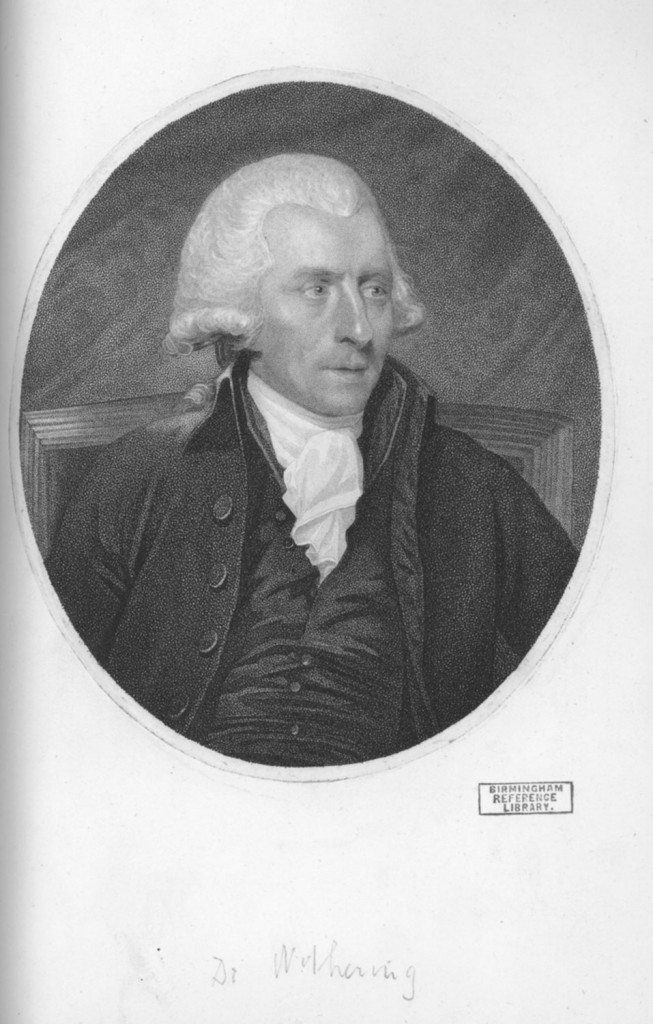A Portrait of Dr. William Withering
William Withering: Physician, Botanist and Mineralogist
In 1741, William Withering was born at Wellington, Shropshire, the only son of Edmund Withering a surgeon. In 1758 he was apprenticed to his father and in 1762 he entered Edinburgh University, to train as a doctor, receiving his M.D. in 1765. He developed an interest in botany. Withering moved to Stafford in 1766, and became one of the first physicians at the local infirmary. In 1772 he married Helena Cooke by whom he had one son and one daughter.
In 1775, William Small, physician to Matthew Boulton died and Withering took over his practice in Birmingham, becoming friends with other members of the Lunar Society. He was appointed Chief Physician at the newly established Birmingham General Hospital, a position he held for 13 years. Like fellow Lunar Society members, he had a wide range of interests in both science and the arts. Withering was an active member of the Society for the abolition of the Slave Trade and he began experiments into the medicinal properties of the foxglove (digitalis) to deal with heart disease. Erasmus Darwin and Withering were involved in a controversy over their respective contributions to the application of digitalis, but Withering probably won the argument. Withering also pursued other scientific activities. In 1784 he was elected a Fellow of the Royal Society for his work in mineralogy. Withering also investigated the phenomenon of the “fairy rings” and discovered in 1792 that they were caused by the roots of mushrooms.
Withering published numerous papers and books on medicine, botany and mineralogy, as well as translating major foreign works, including:
• A Botanical Arrangement of all the vegetables naturally growing in Great Britain, 2 volumes (1776).
• An Account of the Scarlet Fever and Sore Throat, or Scarlatina Anginosa (1778).
• Outlines of Mineralogy (1784).
• An Account of the Foxglove and some of its medicinal uses (1785).
Withering died in 1799 and was buried at Edgbaston Old Church where his memorial includes an engraving of a foxglove. Withering’s systematic and painstaking approach to experimentation, particularly in relation to heart disease, identifies him as a pioneer of the application of the scientific method to medicine.
Sources and Further Reading
Peck, T. W. and Wilkinson, K. D., William Withering of Birmingham (Birmingham, U.K., John Wright and Sons, 1950)
Schofield, Robert E., The Lunar Society, A Social History of Provincial Science and Industry in Eighteenth Century England (Oxford, Clarendon Press, 1963)
Uglow, Jenny, The Lunar Men: The Friends who made the Future 1730-1810 (London, Faber and Faber, 2002)






